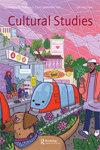Oceanic bellies and liquid feminism in Fatou Diome’s Le Ventre de l’Atlantique
IF 1.6
3区 社会学
Q1 ANTHROPOLOGY
引用次数: 0
Abstract
ABSTRACT Winner of the 2003 Prix des Hémisphères Chantal Lapicque, and translated into German, Italian, Portuguese, Spanish and English, Fatou Diome’s 2003 novel, Le Ventre de l’Atlantique [ The Belly of the Atlantic, 2006] plays on the image of the Atlantic as an oceanic belly. This article explores the usefulness of the black Atlantic epistemology (Glissant 1990, Gilroy 1993) as a site for imagining the production of diasporic space, alongside the critique that ‘by excluding Africa, Gilroy has in effect narrowed the Africanness or Africanity of the ‘Black Atlantic’ (Masilela 1996, p. 88). Through Diome’s novel, I explore how this intersects with a feminist project of rendering visible the spatialization of difference, through an engagement with the geographies of domination. Borrowing from Zymunt Bauman’s (2006) notion of liquid modernity, I therefore propose ‘liquid feminism’ as a framework that relates the globalised oceanic mobilities of African migrants to the structures of patriarchal domination which render black women’s lives ‘ungeographic’ (McKittrick 2006). I start by exploring the geographic sensibility of Diome’s poetics, including her use of the language of geography and her personification of the Atlantic Ocean. I then analyse how her portrayal of a geulwaar matriclan subverts the notion of Western feminism as rescuing African women who are trapped by ‘tradition’. Finally, I explore Diome’s notion of ‘geographic suicide’ as associated with the reflexivity of African women as modern subjects a site for the ‘affective mapping’ (Flatley 2009) of diasporic identity. Ultimately, the article illustrates how Diome’s feminist re-imagining of the black Atlantic centres Africa and Africanness, combating the temporal dislocation that fixes the continent as a space that is lost in the originary moment of rupture of the Middle Passage.海洋的肚子和流动的女权主义在法图·迪奥姆的《大西洋冒险》中
摘要:法图·迪奥姆2003年的小说《大西洋之腹》(the Belly of the Atlantic,2006)获得了2003年Hémisphères Chantal Lapicque大奖,并被翻译成德语、意大利语、葡萄牙语、西班牙语和英语。这篇文章探讨了黑人大西洋认识论(Glissant 1990,Gilroy 1993)作为想象流散空间产生的场所的有用性,同时也提出了“通过排除非洲,吉尔罗伊实际上缩小了“黑人大西洋”的非洲性或非洲性”的批评(Masilela 1996,第88页)。通过迪奥姆的小说,我探索了这是如何与女权主义项目相交的,该项目通过与统治地理的接触,使差异的空间化变得可见。因此,借用Zymont Bauman(2006)关于流动现代性的概念,我提出了“流动女权主义”作为一个框架,将非洲移民的全球化海洋流动与父权制统治结构联系起来,父权制统治使黑人女性的生活“非地理化”(McKittrick,2006)。我首先探讨了迪奥梅诗学的地理情感,包括她对地理语言的使用和她对大西洋的拟人化。然后,我分析了她对geulwaar预科生的刻画是如何颠覆西方女权主义拯救被“传统”束缚的非洲女性的观念的。最后,我探讨了迪奥姆的“地理自杀”概念,认为这与非洲女性作为现代主体的自反性有关——这是散居身份的“情感映射”(Flatley 2009)的网站。最终,这篇文章展示了迪奥姆对黑色大西洋的女权主义重新想象是如何以非洲和非洲为中心的,与时间错位作斗争,这种错位将欧洲大陆固定为一个在中间通道断裂的最初时刻失去的空间。
本文章由计算机程序翻译,如有差异,请以英文原文为准。
求助全文
约1分钟内获得全文
求助全文
来源期刊

Cultural Studies
Multiple-
CiteScore
3.50
自引率
6.70%
发文量
0
期刊介绍:
Cultural Studies is an international journal which explores the relation between cultural practices, everyday life, material, economic, political, geographical and historical contexts. It fosters more open analytic, critical and political conversations by encouraging people to push the dialogue into fresh, uncharted territory. It also aims to intervene in the processes by which the existing techniques, institutions and structures of power are reproduced, resisted and transformed. Cultural Studies understands the term "culture" inclusively rather than exclusively, and publishes essays which encourage significant intellectual and political experimentation, intervention and dialogue.
 求助内容:
求助内容: 应助结果提醒方式:
应助结果提醒方式:


